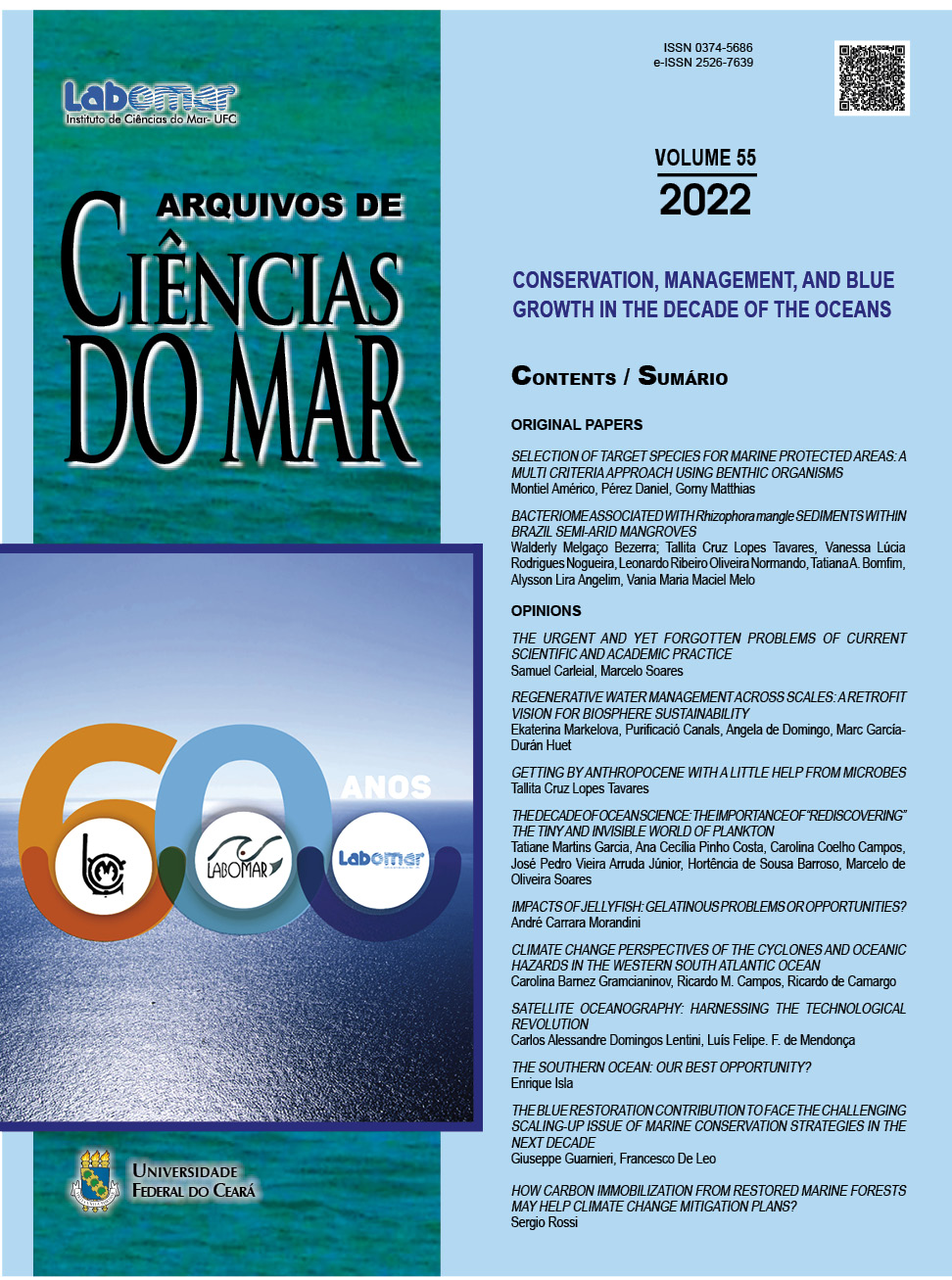MANGROVE RESTORATION IN NE BRAZIL: A UNIFIED CONTRIBUTION TO ADAPTING TO GLOBAL CLIMATE CHANGE
Restauração de manguezais no NE do Brasil: uma contribuição unificadora para adaptação à mudança climática
DOI:
https://doi.org/10.32360/acmar.v55iEspecial.78185Resumen
The decade 2021-2030 was defined by the UN as the decade of ‘Ecosystem Restoration’ and of ‘Ocean Science for Sustainable Development’, aiming to restore ecosystems and protect the Oceans. Among target ecosystems, mangroves are fundamental wetlands, since they support a lively, biologically dynamic frontier between land and sea, furnishing many goods and services in relation to their extension, like fisheries, timber, biodiversity conservation and climate change mitigation, among others. Regarding climate change, mangrove restoration helps mitigate GHG emissions, by sequestering carbon in biomass and sediments for long periods of time and increases shore protection facing sea level rise and extreme climate events. The possibilities and conditions for mangrove restoration are many, and their rehabilitation/restoration is possible as provided by evidence form many experiments worldwide. Notwithstanding, there are still many steps in methodology and governance decisions to place mangrove restoration as a globally effective mitigation and adaptation measure to climate change.
Keywords: global changes, ecosystem services, ecological rehabilitation, mitigation.
Descargas
Publicado
Número
Sección
Licencia
1. Proposta de Política para Periódicos de Acesso Livre
Autores que publicam nesta revista concordam com os seguintes termos:
- Autores mantém os direitos autorais e concedem à revista o direito de primeira publicação, com o trabalho simultaneamente licenciado sob a Licença Creative Commons Attribution que permite o compartilhamento do trabalho com reconhecimento da autoria e publicação inicial nesta revista.
- Autores têm autorização para assumir contratos adicionais separadamente, para distribuição não-exclusiva da versão do trabalho publicada nesta revista (ex.: publicar em repositório institucional ou como capítulo de livro), com reconhecimento de autoria e publicação inicial nesta revista.
- Autores têm permissão e são estimulados a publicar e distribuir seu trabalho online (ex.: em repositórios institucionais ou na sua página pessoal) a qualquer ponto antes ou durante o processo editorial, já que isso pode gerar alterações produtivas, bem como aumentar o impacto e a citação do trabalho publicado (Veja O Efeito do Acesso Livre).

